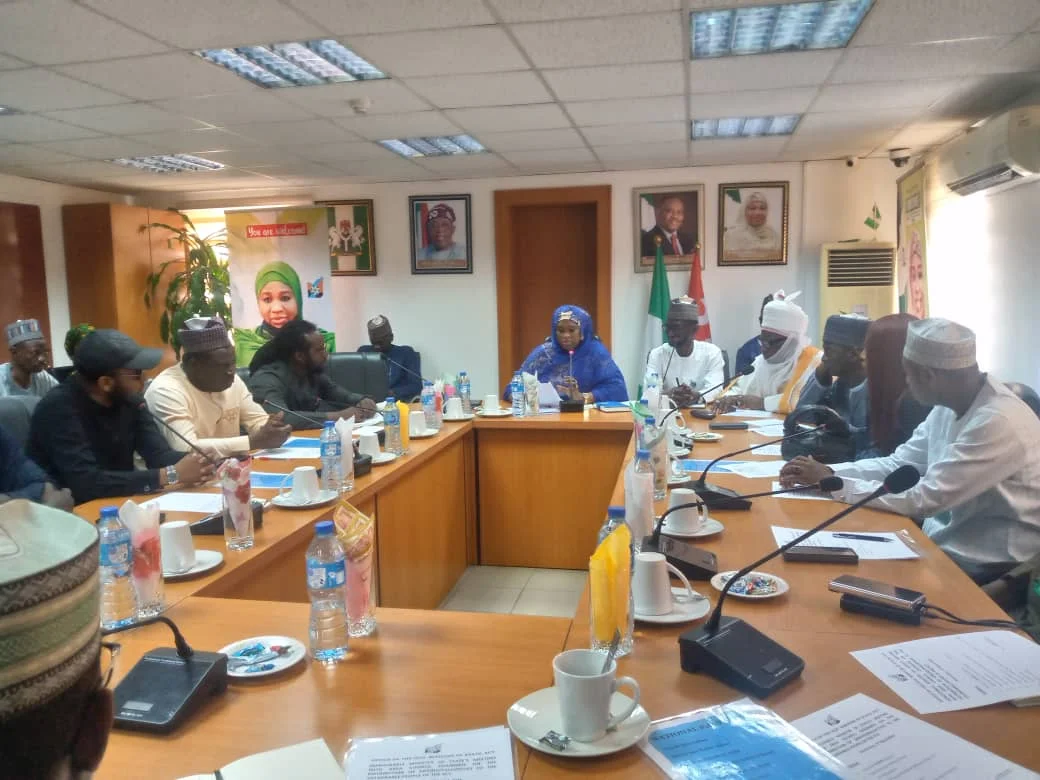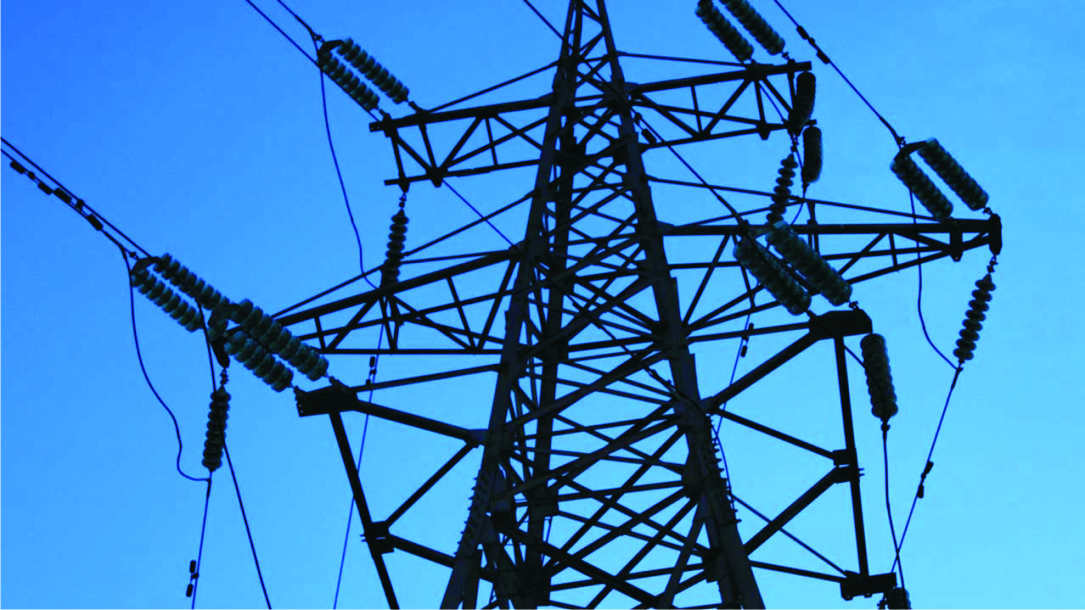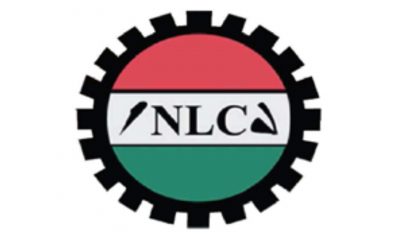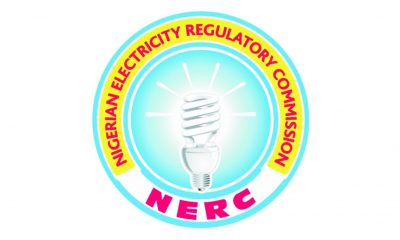Business
Nigeria, China Opens $2b Maritime Investment

The Federal Government, through the Ministry of Marine and Blue Economy, is set to advance a Nigeria/China Maritime Strategy aimed at unlocking over $2 billion in shipping investment.
The initiative, expscted to accelerate indigenous vessel ownership and position the country as a regional maritime hub, has been formally presented to the Minister of Marine and Blue Economy, Adegboyega Oyetola, at the Ministry’s headquarters in Abuja.
The $2 billion investment deal is the result of a strategic collaboration between the Nigeria-China Strategic Partnership (NCSP) and the Global Investment Advisory Community (GIAC), through its Nigerian operator, Anabel Capital.
The strategy is designed to catalyse local participation in the maritime industry by capitalising Nigerian-owned shipping companies and linking them with Chinese shipyards, charter firms, and investment banks.
It also outlines substantial investment in vessel acquisition, maritime training institutions, and the procurement of modern training vessels.
According to the economic blueprint, the initiative will deliver $2 billion in vessel investments, $20 billion in freight contracts for Nigerian operators, $200 million for maritime training, and $50 million for training vessels.
The programme is expected to create over 2,000 new maritime jobs annually, train 25,000 globally certified Nigerian seafarers, and build a robust local shipping ecosystem.
Minister Oyetola described the strategy as a “game changer” that aligns with the Ministry’s overarching priorities for sectoral reform and economic growth
He stressed the need to rapidly build indigenous capacity, deepen public-private collaboration, and transition toward Nigerian ownership of commercial vessels.
Also present at the meeting were Permanent Secretary of the Ministry, Mr. Olufemi Oloruntola; Managing Director/CEO of the National Inland Waterways Authority (NIWA), Mr. Munirudeen Bola Oyebamiji; Director-General of the NCSP, Mr. Joseph Tegbe; Managing Director of Anabel Capital, Dr. Nicholas Okoye; and Project Manager at NCSP, Ms. Lela Omo-Ikirodah.
The Nigeria–China Maritime Strategy forms part of broader efforts to translate strategic diplomacy into high-impact, private-sector-driven economic outcomes, in line with the Renewed Hope Agenda of President Bola Ahmed Tinubu.
Continue Reading
Business
FG Boosts Local Energy Supply Chain

The Federal Government says it is taking concrete steps to build a resilient local energy supply chain to cushion Nigeria against global disruptions that have increasingly threatened the stability of cross-border energy operations.
Speaking at the 2025 Nigeria Annual International Conference and Exhibition of the Society of Petroleum Engineers in Lagos, the Minister of State for Petroleum Resources (Oil), Senator Heineken Lokpobiri, said Nigeria could no longer afford to rely solely on international supply chains amid rising uncertainties globally.
“On the matter of supply chain, we recognise the multifaceted challenges trade wars, sanctions, currency instability, regional conflicts, and security concerns.
“These disruptions have affected the flow of goods and services across borders”, he said.
The oil minister stated further, “While we continue to engage internationally, we must also strengthen local capacity and resilience to mitigate future shocks.”
Lokpobiri explained that these efforts are part of the government’s broader strategy to fortify the country’s energy ecosystem while expanding opportunities for local players.
He noted that the administration of President Tinubu has pursued deliberate and investment-driven reforms to position Nigeria as a preferred destination for energy investment.
“The Federal Government, under the leadership of President Tinubu, has pursued deliberate and investment-friendly policies aimed at positioning Nigeria as the leading destination of energy investors.
“The implementation of the Petroleum Industry Act has brought about liberalisation of the national sector, improved wealth and mobility, and boosted investor confidence.
“Through that solid base, executive orders, and other strategic incentives, we are making Nigeria increasingly attractive to both local and international partners”, he said.
He stated that this renewed investor confidence is evident in “the growing number of engagements we are having with foreign governments and private sector leaders exploring mutually beneficial collaborations.”
To further deepen Nigeria’s human capital and technical base in energy, the Minister announced the establishment of a new postgraduate energy university in Kaduna, through strategic partnerships with three top British universities.
He explained, “These efforts complement the ongoing participation of international professionals who have long contributed meaningfully to Nigeria’s energy development. To further deepen our capacity, we have established a postgraduate energy university in Kaduna.
“In line with our transnational education policy, we are partnering with three of the United Kingdom’s top universities to expand our field of specialised energy professionals, developing homegrown expertise in global-based practices.”
He closed his remarks with a call to action, urging stakeholders to collaborate toward building a sustainable and profitable energy future.
“In conclusion, I urge everyone here, industrial experts, policymakers, investors, and scholars, to actively engage, share insights, and chart solutions as we work toward a truly sustainable energy future.
“Let us leverage technology for innovation and profitability, strengthen our supply chains, develop our local and international human capital, and continue to foster a stable, environment-friendly, investment-friendly environment that this administration is committed to sustaining”, he stressed
Business
FOCPEN Seeks Direct Energy Purchase From GenCo

The Forum for Commissioners of Power and Energy in Nigeria (FOCPEN) which are representatives of state governments have sought the signing of interim Power Purchase Agreements (PPAs) for SubCos to buy energy directly from electricity Generation Companies (GenCos).
It is an indication that the state governments are seeking the application of the eligible customer regulation of 2017 that makes it possible for customers to purchase energy directly from the GenCos.
In this case, the states are requesting for agreements to bypass the DisCos in the value chain.
According to a press statement the forum issued from Abuja, “Such regulation may include a mandate for NBET to enter into direct or interim Power Purchase Agreements (PPAs) with SubCos.”
The forum also called on the Minister of Power, Chief Adebayo Adelabu to intervene and ask the Nigerian Electricity Regulatory Commission (NERC) and Enugu Electricity Distribution Company (EEDC) to restore electricity to the people of the state.
The EEDC had reduced energy allocation to the state owing to the decision of the Main Power Electricity Distribution Ltd to reduce band A tariff from N209/kWh to N160/kWh.
According to Main Power, EEDC has said implementing the adjusted tariff would cause a monthly loss of N1 billion. The EEDC has therefore reduced energy supply to the people of the state.
Responding to the situation, the FOCPEN stressed that “FOCPEN calls upon the Minister of Power, Chief Bayo Adelabu, to immediately intervene and prevail upon NERC and EEDC to reverse the power cuts and restore electricity to the people of Enugu State.”
The forum insisted that as the chief policy maker for the sector, the Minister must take decisive action to stop the lawlessness by DisCos who can arbitrarily and without consequence deprive citizens of electricity.
The forum also said NERC must develop appropriate regulations that would allow SubCos enter into bilateral contracts with GenCos to procure wholesale power from the national grid.
The forum said the current arrangement, where SubCos receive power through their HoldCos is an anti-competitive practice that limits their operational autonomy within SEMs and creates a potential for abuse, as evidenced by the current crisis.
Business
FOCPEN Also Urged That There Must Be Regulatory Sanctions Against EEDC

“Apply Regulatory Sanctions against EEDC: NERC must sanction EEDC for its actions. The Commission must prove that it has the teeth to regulate the NESI as the apex regulator and protect consumers from the tyranny of powerful Successor DisCos HoldCos that are currently its licensees”, said the forum.
The FOCPEN strongly condemned the recent and ongoing power outages in Enugu State, attributable to a deliberate action by EEDC to reduce power to Enugu State electricity market.
The statement reads in part: “EEDC has based its decision on the recent tariff order issued to its subsidiary company, MainPower Electricity Distribution Limited (“Main Power”), by the Enugu Electricity Regulatory Commission (the “Regulator”), which reduced Band A electricity tariffs from N209/kwh to N160/kwh effective from August 1st, 2025.
“FOCPEN views this unilateral action by EEDC not merely as a regulatory dispute with the Regulator, but as a declaration of war on the good people of Enugu State by EEDC. FOCPEN wishes to state that EEDC’s reckless action is a grave violation of its license obligations under existing national electricity regulations. EEDC’s action is also a clear demonstration of the flawed privatization process that has empowered private investors of DisCos to deprive citizens of essential electricity services with impunity.
“FOCPEN wishes to state unequivocally that if MainPower or EEDC believe the tariff as set by the Regulator is inadequate, the appropriate and legal path is to seek a review through established regulatory processes.
To resort to an arbitrary disconnection or reduction of power by up to 50% to a State, smacks of blackmail by EEDC.
“EEDC’s action also portends grave danger for consumer rights in the NESI, and undermines the ongoing implementation of State Electricity Markets (SEM). Furthermore, it exposes the alarming market power of DisCos to hold electricity regulators at sub-national and at the federal level, to ransom.
“EEDC’s action sets a dangerous precedent for other DisCos to undermine the successful implementation of the Electricity Act 2023 and decentralization of electricity regulations.
“FOCPEN calls on the Nigerian Electricity Regulatory Commission (NERC) to immediately call EEDC to order. NERC, as the current regulator of EEDC, must investigate this matter thoroughly and sanction this unacceptable action by EEDC, which FOCPEN believes has no regulatory approval from NERC.
“To prevent such reckless action by a Distribution Licensee from happening again, FOCPEN demands the following:
“FOCPEN will continue to monitor the situation closely and will not hesitate to take further action to ensure the rights of consumers within SEMs are protected. FOCPEN stands in solidarity with the people of Enugu State and call on all relevant authorities to address this crisis with the urgency it deserves.”
-

 News2 days ago
News2 days agoEx NLC Chairman Denies Rumour of Parallel CDC In Amadi Ama Community
-
Sports2 days ago
NFF Applauds Carloha After WAFCON Triumph
-
Niger Delta2 days ago
Edo Judiciary, Legal Practitioners Unite Against Insecurity
-

 News2 days ago
News2 days agoTinubu Appoints New Chairman For NERC
-

 News2 days ago
News2 days agoNAF, NIGCOMSAT Partner To Strengthen National Security, Surveillance Capabilities
-

 Business2 days ago
Business2 days agoPETROAN Faults NNPC’s PH Refinery Retention
-

 News2 days ago
News2 days agoWAEC Apologizes For 2025 WASCCE Glitch …Asks Candidates To Recheck In 24 Hours
-
Sports2 days ago
AFN Confirms Ofili’s Turkey Move


